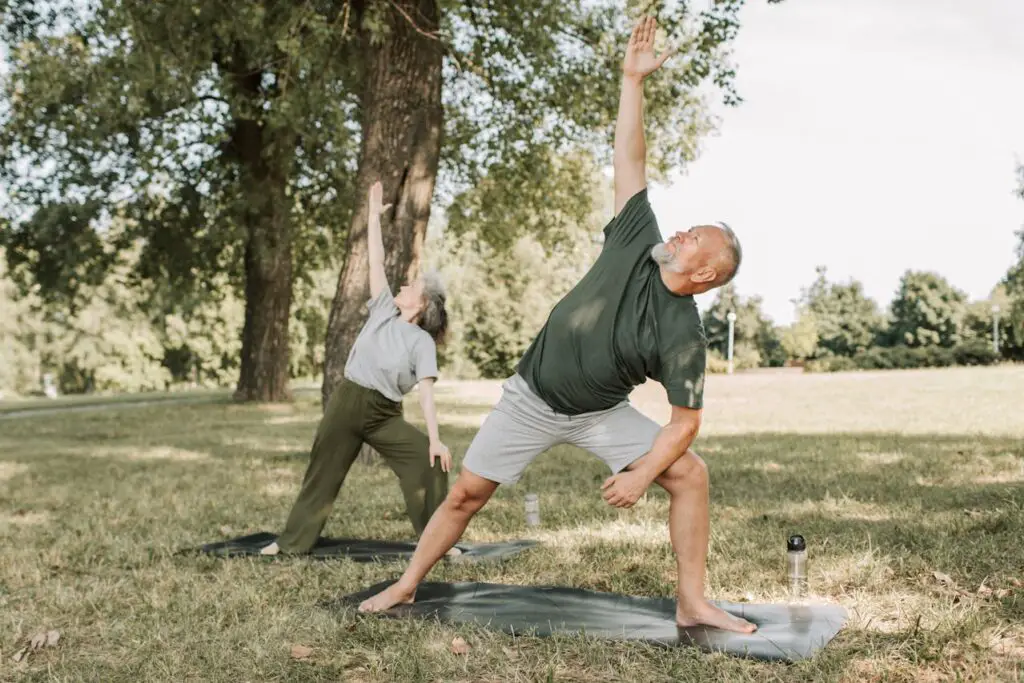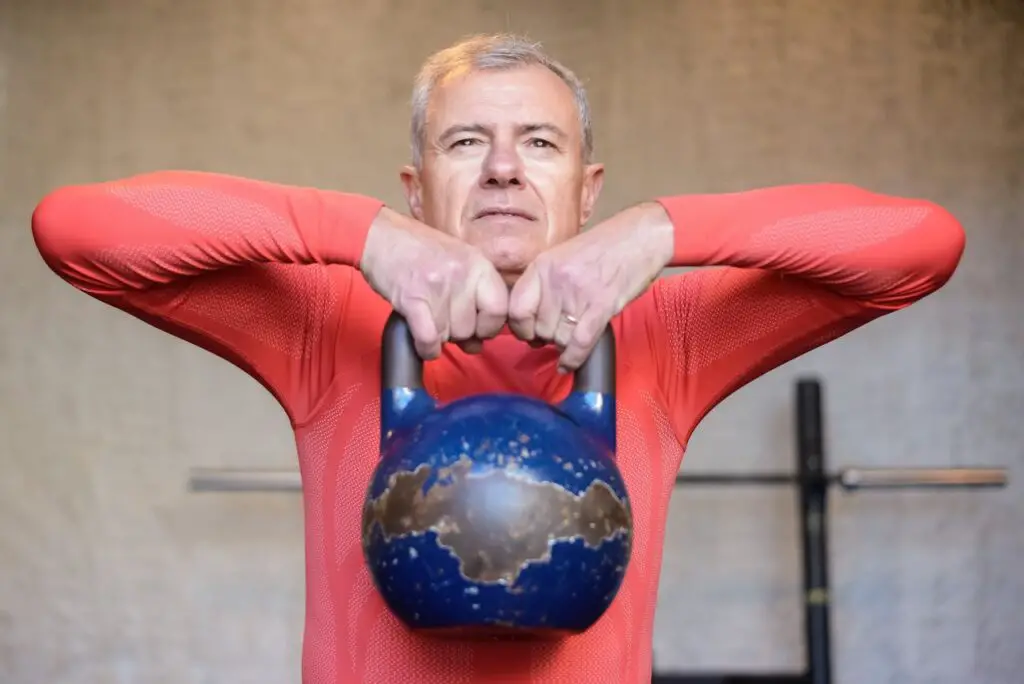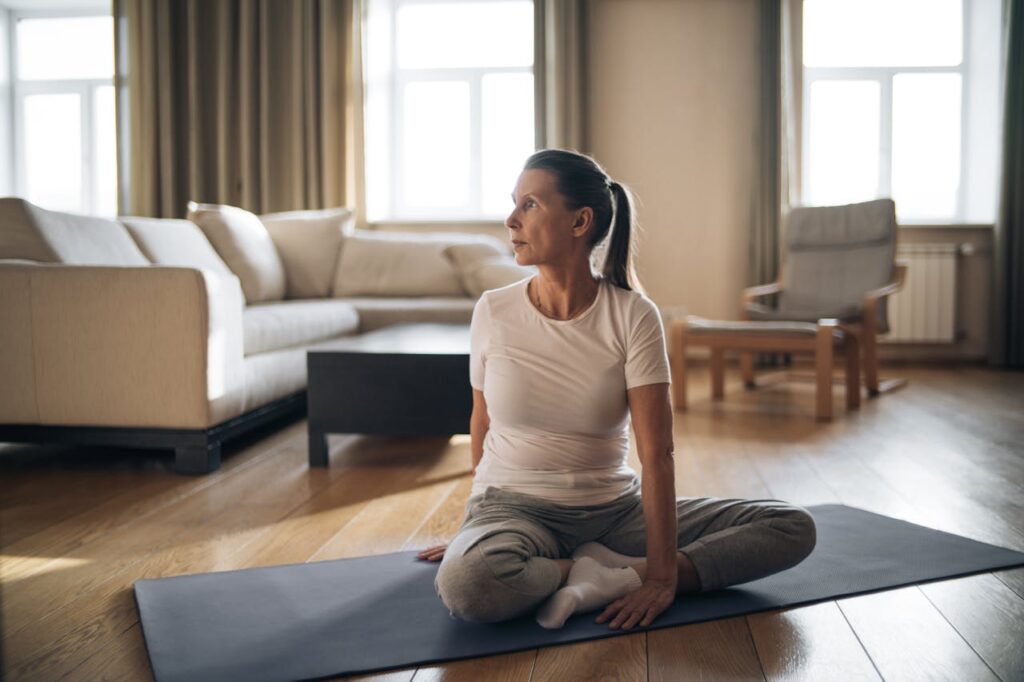5 Simple Fitness Habits to Boost Energy and Health in Your 50s

Reaching your 50s does not mean slowing down. In fact, this is the perfect time to establish simple fitness habits that can boost energy, improve overall health, and enhance quality of life. A well-balanced fitness routine does not have to be complicated or exhausting. By focusing on consistent movement, flexibility, strength, and recovery, you can stay active and feel your best every day. The key is to develop habits that fit seamlessly into your daily routine while delivering long-term benefits. Here are five simple fitness habits that will help you maintain vitality and wellness in your 50s.
1. Start Every Day with Gentle Stretching

Stretching in the morning can help loosen stiff muscles, improve circulation, and set a positive tone for the day. As the body ages, flexibility naturally decreases, which can lead to discomfort and a higher risk of injury. A few minutes of gentle stretching upon waking up can enhance mobility and keep the body limber. Focus on dynamic stretches such as shoulder rolls, side bends, and gentle leg swings to wake up the muscles. Incorporating yoga or tai chi into your routine can also help with balance and relaxation. Stretching regularly not only improves range of motion but also reduces muscle stiffness and enhances posture, making daily activities easier and more comfortable.
2. Incorporate Strength Training into Your Weekly Routine

Strength training is essential for maintaining muscle mass, bone density, and metabolic health in your 50s. As the body ages, muscle naturally declines, leading to a slower metabolism and a higher risk of osteoporosis. Incorporating resistance exercises at least two to three times a week can help combat muscle loss and keep bones strong. Simple bodyweight exercises like squats, push-ups, and lunges are effective and can be done at home. Adding light dumbbells or resistance bands can further enhance muscle engagement. Strength training not only helps build a toned physique but also improves balance, coordination, and overall strength, making everyday activities such as lifting groceries or climbing stairs much easier.
3. Walk Daily for Cardiovascular Health

Walking is one of the simplest and most effective exercises for maintaining heart health, improving endurance, and boosting energy levels. A brisk walk for at least 30 minutes a day can help regulate blood pressure, lower cholesterol levels, and reduce the risk of heart disease. Walking also aids in weight management and supports mental well-being by reducing stress and improving mood. Whether it is a walk in the park, a treadmill session, or a casual stroll around the neighborhood, consistent movement strengthens the heart and lungs. For an added challenge, try incorporating intervals by alternating between a moderate and brisk pace to maximize cardiovascular benefits. Walking is a low-impact activity that keeps the body active without straining the joints, making it ideal for individuals in their 50s.
4. Prioritize Recovery and Quality Sleep

Recovery is just as important as exercise, especially in your 50s when the body requires more time to heal and rebuild. Overexertion without proper rest can lead to fatigue, muscle soreness, and an increased risk of injury. Incorporating rest days into your fitness routine allows muscles to recover and grow stronger. In addition, quality sleep plays a crucial role in overall health, affecting energy levels, metabolism, and cognitive function. Aim for seven to nine hours of sleep each night by maintaining a consistent sleep schedule and creating a relaxing bedtime routine. Avoiding caffeine late in the day, limiting screen time before bed, and keeping the bedroom cool and dark can significantly improve sleep quality. Proper recovery ensures that the body remains strong and ready for the next workout, ultimately leading to better long-term fitness results.
5. Stay Hydrated and Nourish Your Body with Proper Nutrition

Hydration and proper nutrition are fundamental to maintaining energy levels and overall health. Dehydration can lead to fatigue, joint pain, and reduced exercise performance, making it essential to drink plenty of water throughout the day. Starting the morning with a glass of water and carrying a reusable water bottle can help ensure adequate hydration. Nutrition also plays a vital role in supporting an active lifestyle. A diet rich in lean proteins, whole grains, healthy fats, and plenty of fruits and vegetables provides essential nutrients for muscle recovery and energy production. Reducing processed foods, excess sugar, and unhealthy fats can help prevent inflammation and chronic diseases. A well-balanced diet combined with proper hydration enhances workout performance, promotes faster recovery, and supports overall vitality in your 50s.
Final Thoughts

Maintaining energy and health in your 50s does not require extreme workouts or strict dieting. Simple, consistent fitness habits such as stretching, strength training, walking, prioritizing recovery, and staying hydrated can make a significant difference in how you feel and function each day. The key is to listen to your body, stay consistent, and make adjustments based on your needs. By incorporating these habits into your daily routine, you can enjoy improved mobility, increased strength, and a greater sense of well-being for years to come. Fitness is not about age; it is about making choices that support an active and healthy lifestyle at any stage of life.
Leave a Reply